Kieran McGrath shooting: The killers undone by technology – BBC News
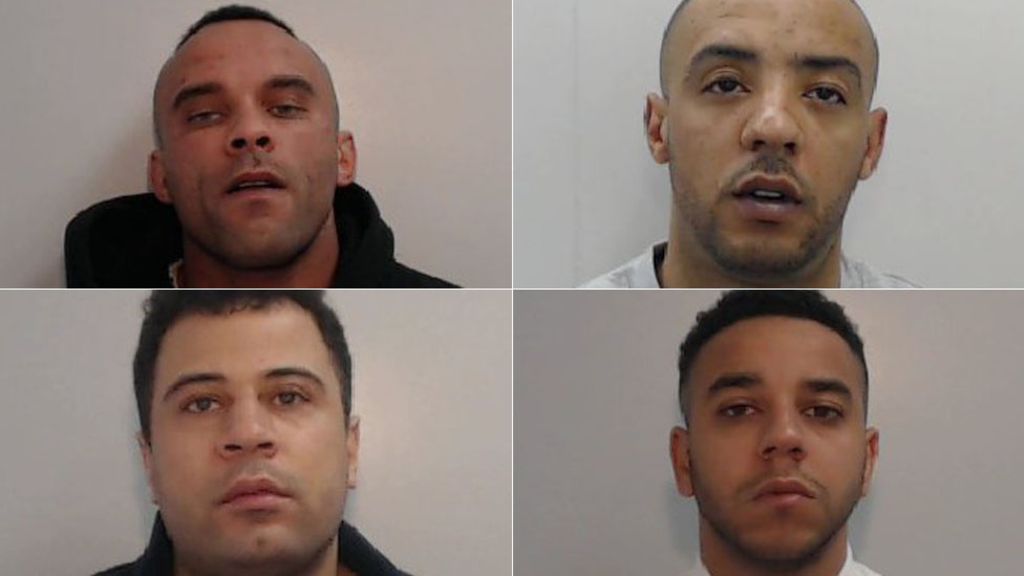
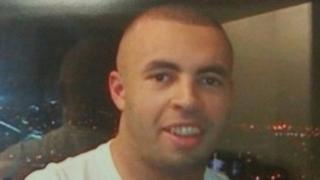 Image copyright Greater Manchester Police
Image copyright Greater Manchester Police The case of a gang who used a tracking device to help them hunt down a man and shoot him dead has finally reached its conclusion. As the last member of the group is sentenced to life for the murder of Kieran McGrath, BBC News reveals how the technology used by the killers was to prove their undoing.
On the evening of 4 October 2014, Mr McGrath was getting in to his car outside the Sheldon Arms when four shots were fired at him, one of which hit him in the back.
Despite this he managed to speed off, making his attackers think he had escaped unharmed, but the 26-year-old had been mortally wounded.
He was able to drive about a mile to the police station in Ashton-under-Lyne, Greater Manchester, but after he got out of his white Audi RS he collapsed and died.
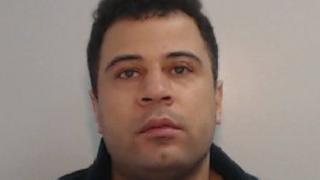 Image copyright Greater Manchester Police
Image copyright Greater Manchester Police Earlier that day, the man who had orchestrated the killing, Anthony Henry, was holed up in his Manchester flat watching Mr McGrath’s movements on an iPad tracker, as he had been doing every day for several weeks.
Henry, 32, and Mr McGrath had been locked in a “bitter feud”, which Greater Manchester Police said the older man saw as “damaging to both his pride and reputation”.
And so a surveillance plan was arranged.
Covert tracking devices had been bought from a shop in Stockport in April 2014. One of these trackers would be instrumental in a gunman locating Mr McGrath.
A first tracker had been placed on the bottom of his car the month before the shooting but it was found by a mechanic during an MOT.
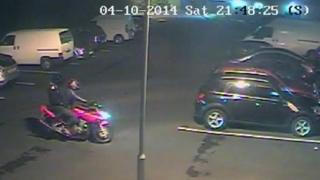 Image copyright Greater Manchester Police
Image copyright Greater Manchester Police The trial heard Mr McGrath called Henry and said: “What are you putting a tracker on my car for? You’ve got my phone number, just call me and I’ll tell you where I am and we’ll have it out.”
But Henry did not want to sort things out face to face, telling his rival he had paid someone to “do him in”.
Henry’s “right-hand man”, Troy Beckford, 23, placed a second tracker on another car Mr McGrath part-owned, the Audi.
The “hit” was meticulously planned by Henry who had “taken certain precautions” – but several mistakes made by other members of the gang and the use of mobile phones would eventually lead police to his door.
 Image copyright Greater Manchester Police
Image copyright Greater Manchester Police On the night of 4 October 2014, self-confessed drug dealer Henry tracked his victim’s Audi to the Sheldon Arms car park and tipped off the man who would pull the trigger.
That was Remi Adams, 34, a pillion passenger on a stolen red motorbike, whom Henry had met in prison.
Adams and the motorbike rider, Jace Smith, 31, had been hired by Henry to carry out the shooting and had been involved in a practice run the day before.
On 3 October they drove past Mr McGrath’s friend’s house several times. The next day, two mobile phones were bought from a shop in Middleton by Troy Beckford, one to be used by Henry and the other by Adams.
Later that day Adams – who was on Thursday jailed for life with a minimum tariff of 30 years – fired four shots at Mr McGrath, one of which would end his life.
The gun he fired was the same one used in the unsolved murder of Manchester shopkeeper Pragaret Singh, 35, three weeks later. Police believe the firearm was passed between criminals.
In the aftermath of the shooting of Mr McGrath, the gang met at a property in Blackley but, having seen their target speed off, were unaware he had died.
“Yo Ant, listen…we’ll get him man,” said Adams to the group, while he was on a recorded phone call to a taxi company.
This became a key piece of evidence.
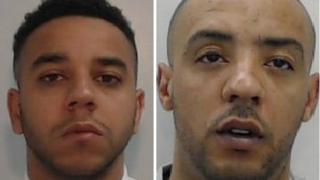 Image copyright Greater Manchester Police
Image copyright Greater Manchester Police When the men found out the plan had been successful Henry’s girlfriend, Bretony Gallimore, 24, booked a hotel room in Ramsbottom so they could hide from police. She was convicted of assisting an offender.
It was four months before detectives were able to make any real breakthrough in the investigation.
“It is without doubt the most complicated case that I have worked on,” Det Ch Insp Terry Crompton explained. “When I started this investigation we didn’t have a single witness to actually what had taken place.”
But there were other avenues officers could explore.
Detectives were able to exploit the data recovered from the tracking device and iPad, Det Ch Insp Crompton said.
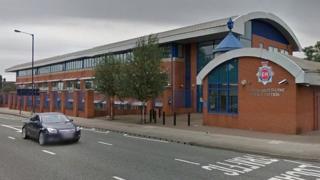 Image copyright Google
Image copyright Google And a blue light, seen on just three frames of CCTV footage, revealed to police that Adams had used a mobile phone on the night of the murder.
Tracking down the phones discarded by the gang immediately after the crime was “critical” to the inquiry, the detective said.
In addition, GPS technology from the taxi, ordered on one of the mobile phones, led back to Adams’s home in Whitefield.
And so while it was technology that allowed Henry’s gang to track down and kill their target, it was also to prove their undoing.
Det Ch Insp Crompton said that Henry – who had seen himself as “untouchable” – had taken a lot of precautions but also made mistakes.
“[Without the digital information] it would have been impossible to secure a conviction, without a witness there would be no way we would get to the bottom of this. Things are changing vastly and we are becoming a much more digital world.
“Those opportunities are available to the criminals but by the same token they are also available to the police as well.”
Read more: http://www.bbc.co.uk/news/uk-england-manchester-36037405